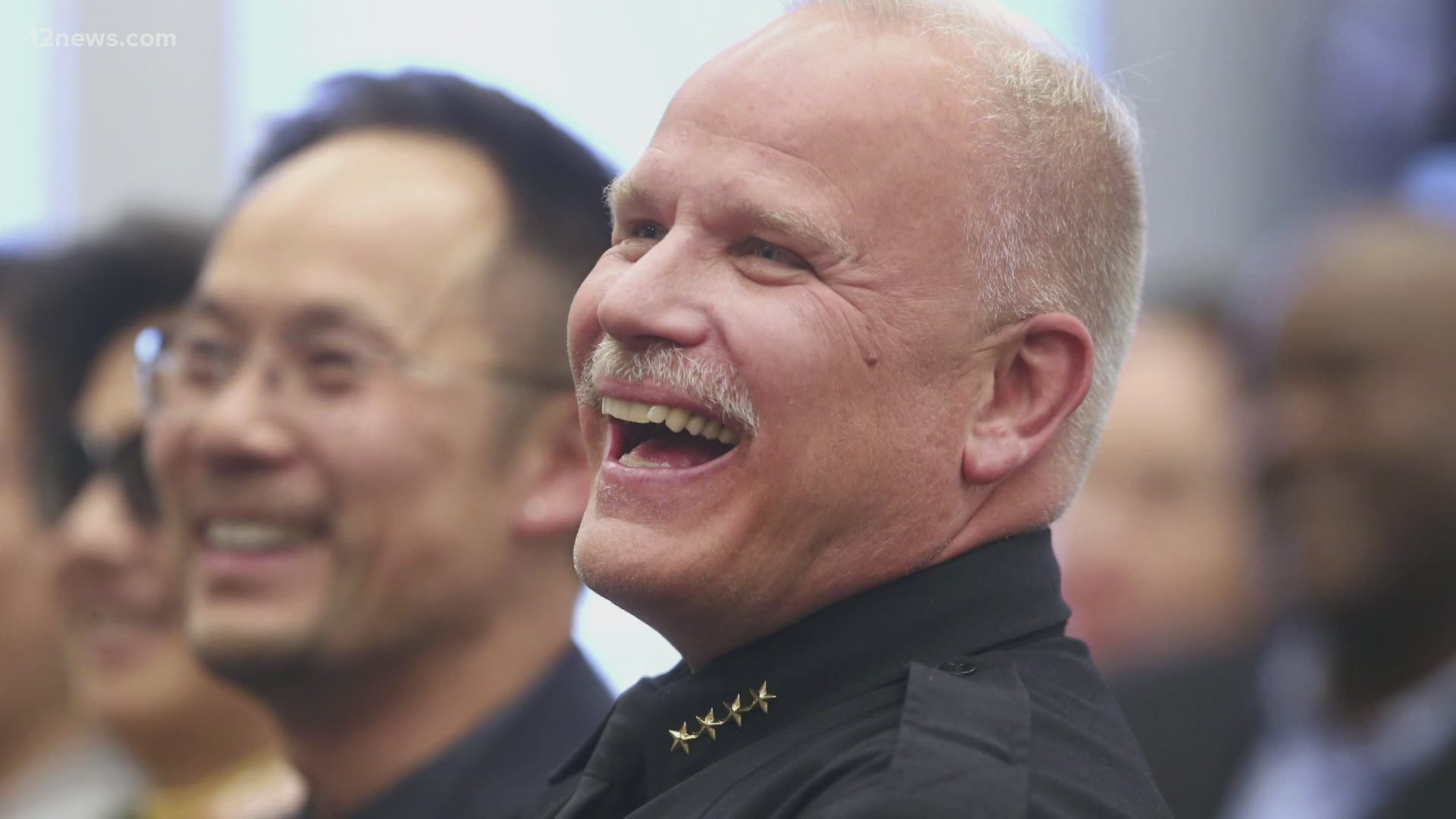WASHINGTON, D.C., USA — The head of U.S. Customs and Border Protection is being forced out of his job leading the nation’s largest law enforcement agency as the number of illegal crossings rose to the highest level ever recorded in a fiscal year, according to two people familiar with the matter.
Chris Magnus, who has been commissioner less than a year, was told to resign or be fired, according to two people who briefed on the matter but not authorized to speak publicly and did so on condition of anonymity.
It is part of a larger shakeup expected at Homeland Security as officials struggle to manage migrants coming from a wider range of countries, including Venezuela, Cuba and Nicaragua.
Migrants were stopped 2.38 million times in the fiscal year that ended Sept. 30, up 37% from the year before. The annual total surpassed 2 million for the first time in August and is more than twice the highest level during Donald Trump’s presidency, in 2019.
Brandon Judd, the president of the National Border Patrol Council, confirmed that Magnus was being pushed out.
The Los Angeles Times was first to report on the ultimatum. In a statement to the newspaper, Magnus said he was asked by Homeland Security Secretary Alejandro Mayorkas to step down or be fired. He said he wouldn’t step down and defended his record.
Neither Customs and Border Protection nor the Homeland Security Department responded to requests for comment.
The shakeup comes as Republicans are likely to take control of the House in January and were expected to launch investigations into the border. The Republicans insist that Biden’s policies have not worked.
While Trump-era asylum restrictions encourage repeat attempts, flows have been extraordinarily high by any measure. The numbers reflect deteriorating economic and political conditions in more countries, relative strength of the U.S. economy and uneven enforcement of asylum restrictions.
The Biden administration agreed with Western hemisphere leaders in June to work together more on hosting migrants who flee their countries. Last month, Mexico began taking back Venezuelans who entered the U.S. illegally but measures so far have failed produce major change.
“There have always been periods of migrant surges into this country for different reasons, at different times,” Magnus told The Associated Press last year. “But I don’t think anybody disputes that the numbers are high right now and that we have to work as many different strategies as possible to deal with those high numbers.”
Despite decades in law enforcement, Magnus was an outsider. As the police chief in Tucson, Arizona, he rejected federal grants to collaborate on border security with the agency he now leads and kept a distance from Border Patrol leaders in a region where thousands of agents are assigned.
Magnus rankled some rank-and-file agents — and delighted agency critics — with his announcement in May that he was revisiting guidelines for agents to pursue vehicles after spate of fatal collisions.
In July, Magnus released an investigation that said Border Patrol agents on horseback engaged in “unnecessary use of force” against Haitians at a massive camp in Del Rio, Texas in September 2021 but didn’t whip any with their reins.
The National Border Patrol Council has been more muted in its criticism of Magnus than of Mayorkas but Judd, the union president, said he welcomed Magnus’ departure.
“I think it’s a good thing,” Judd said. “He was just working on policies that were just going to incentivize more criminal activity. The vehicle-pursuit policy, had he implemented that, all it would have done is increase criminal activity.”
Magnus was subject of an unflattering profile in Politico that cited unnamed administration officials saying he missed White House meetings, failed to build relationships within and outside his agency and was unengaged, even falling asleep in meetings. Magnus insisted he was deeply involved in immigration-related discussions.
Magnus was born and raised in Lansing, Michigan, where he served stints as an emergency dispatcher, paramedic, sheriff’s deputy and police captain. He was police chief in Fargo, North Dakota, and Richmond, California, before he took the job in Tucson in January 2016.
In Tucson, Magnus created a program to steer people away from drugs, worked with nonprofits helping homeless people and overhauled the department’s use-of-force policy. He openly criticized Trump policies for making migrants more reluctant to share information about crimes with police.
Roy Villareal, chief of the Border Patrol’s Tucson sector from early 2019 until late 2020, said he sought an introductory meeting with Magnus, who was then Tucson’s police chief, but that he never heard back, calling their lack of interaction “a telling sign."

